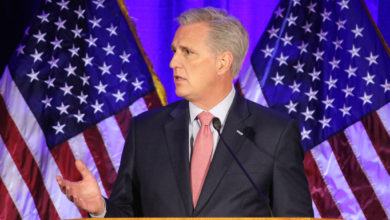To most Americans, the abbreviation “G-20” bears little significance. In the coming weeks, however, it could become increasingly important as a wide range of world economic leaders (officially the Group of Twenty Finance Ministers and Central Bank Governors) meet in Pittsburgh, Pa., during the worst crisis for the worldwide capitalist system in generations.
|
The G-20 consists of the finance ministers of 19 economically “significant” nations, as well as financial representatives from the European Union, the International Monetary Fund and the World Bank. These officials gather one to two times per year to discuss the world economy and make joint decisions affecting finance. On the surface, this seems to be a harmless—even positive—thing, considering the recent worldwide financial crisis.
In pro-G-20 media, the gathering is portrayed as a friendly, beneficial series of discussions by officials from both rich and poor nations. Despite outward appearances, however, the G-20 is in reality a tool of aggression. Its main purpose is to strengthen and enforce the international capitalist system and their banks—to keep the vast majority of the world’s wealth in the hands of the few.
Behind vaguely described programs to “reinforce international cooperation” and “strengthen collaboration,” the conference’s representatives work to “integrate” so-called first- and third-world economies while streamlining the efforts of organizations like the IMF. The main function of the IMF is to help impose the economic interests of wealthy countries on the rest of the world. It does this by forcing entire countries into debt and by demanding “free trade,” anti-union and other damaging policies.
G-20 leaders often tout the fact that, unlike the G-8 and similar groups, their gathering includes poorer, but economically significant nations such as Indonesia, Brazil and South Africa. The economic summit ignores a number of countries, such as Iran and Venezuela, who are absent from their meetings despite having larger economies than a number of G-20 participants.
The exclusive G-20 does not exist to promote equality or respect between peoples, even if some select countries are given an “equal voice” in the G-20 discussions. All countries should have the right to economic equality and self-determination, without any interference from imperialist governments and bankers.
The G-20 does not harm only workers in oppressed countries. Meeting behind closed doors, these finance ministers espouse the same pro-corporate banking policies that have led to millions being laid off and foreclosed on here in the United States. Their decision to meet in Pittsburgh—a city deeply affected by economic crises of years past—shows the callousness of these world leaders in the face of massive human suffering.
In other nations, workers have taken to the streets time and time again to demonstrate against the G-20. Realizing the danger posed by such a large gathering of wealthy banking officials, tens of thousands of workers and students gathered in London this year to protest the G-20 summit and their government’s response to the worldwide financial collapse.
Protesters continue to voice their opposition to the undemocratic G-20 everywhere its representatives meet. In Pittsburgh this September, a wide variety of labor, student, anti-war and environmental organizations will march on the “friendly” meeting of world bankers.
The Party for Socialism and Liberation will be participating in the protests and events opposing the G-20 summit taking place in Pittsburgh Sept. 19-25, and joins hands with the international working class to say no to the G-20: “People over Profit!”
If you are interested in working with the PSL during the week of activities, email [email protected] or call 202-543-4900.







